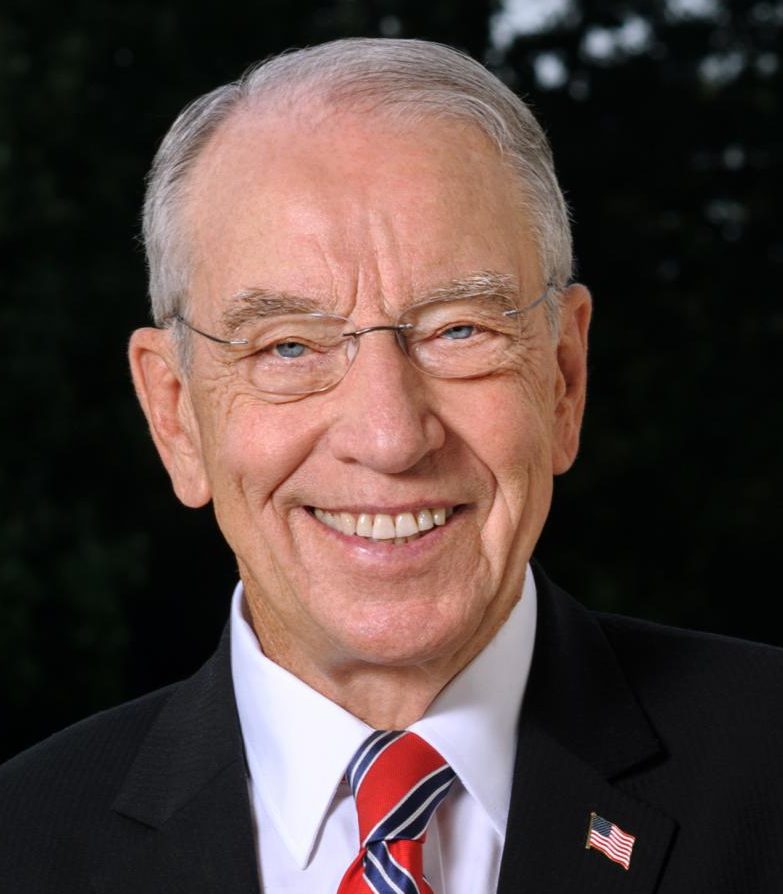Sen. Chuck Grassley (R-Iowa) praised the passage of the Water Resources Development Act of 2020 (WRDA) which was included in the year-end funding bill. WRDA addresses the civil works program of the Army Corps of Engineers. Grassley worked with the Senate Committee on the Environment and Public Works to include provisions that will specifically benefits Iowans.
“Iowa saw catastrophic flooding on both the Missouri and Mississippi Rivers once again in 2019. It seems that misguided decisions and misplaced priorities by the federal government sometimes eclipse the protection of life, safety, local communities, millions of bushels of grain and thousands of acres of farmland. Corps policies should be examined and updated to help prevent and recover from these devastating flood events,” Grassley said. “It’s important that Congress pass a Water Resources Development Act every two years. This legislation will help communities move forward with projects critical for flood control, navigation, ports, locks and dams and other water resources infrastructure. Iowans depend on these reforms to help reduce the repetitive and destructive flooding we see so often and improve the navigability on our rivers.”
Grassley advocated for a number of provisions that were incorporated in the final bill including the Inland Waterway Trust Fund Cost Share Program. This provision modifies the cost share for construction or major rehabilitation of a project on the inland waterways to 65 percent from the general fund of the Treasury and 35 percent from the Inland Waterways Trust Fund. This cost share modification will specifically help the modernization of the locks and dams on the Upper Mississippi River to move forward at a faster rate as they start the construction phase of the Navigation and Ecosystem Sustainability Program (NESP).
Grassley recently joined his colleagues in sending a letter to the Corps asking for the inclusion of a new start for a construction project through the NESP in the Corps Fiscal Year 2021 Work Plan.
Grassley also worked to include a provision that would make temporary flood control structures permanent. This provision creates a new authority for the Corps to review whether temporary flood control structures it has constructed should be made permanent, and allows the local cost-share for making them permanent to be waived for communities that are small, financially disadvantaged or at risk of recurring flooding.
The new authority is based off the Local Expertise is Vital for Effective Embankments (LEVEE) Act introduced by Sens. Joni Ernst (R-Iowa) and Kirsten Gilibrand (D-N.Y.). Grassley was an original cosponsor.
In April 2019, Grassley along with Sens. Ernst, Gilibrand, and Jerry Moran (R-Kan.) participated in a field hearing of the Senate Environment and Public Works Committee in southwest Iowa in which local stakeholders including Mayor Crain of Hamburg, described the struggles communities have in keeping levee improvements made in face of flooding permanent.
In 2011, the Corps raised the Ditch 6 levee by about eight feet to help protect the town against flood waters. This levee held the floodwaters back, but unfortunately, Corps policy told them they had to take down the additional protection or rebuild it to Corps specifications. Hamburg was unable to come up with the additional funds to rebuild the levee so they were forced to take it down. The same levee was overrun last year, contributing to the destructive flooding that left two-thirds of Hamburg under water.
The City of Hamburg, the State of Iowa and the Corps are building additional flood protection. Grassley and Ernst are communicating with all parties to make sure that this project moves forward as smoothly and efficiently as possible.
Grassley was also vocal to include a provision to update the Des Moines Birdland Levee. The Water Resources Development Act of 2007 authorized the Des Moines and Raccoon River project which was completed in 2012. However, due to design deficiencies by the Corps, approximately 1.7 miles of this levee does not meet the Corps’ design criteria for under-seepage. This additional authorized funding will bring the deficient portion of the levee up to Corps standards.
The final bill also contains important provisions for Iowans including expanding work on a Lower Missouri River Basin Flood Risk Resiliency Plan, expedited completion of maintenance and repair activities for federally operated and maintained levees systems in the Lower Missouri River basin, expedited processing of permits and approvals of repairs of flood control infrastructure caused by flood in 2019, changes to the PL 84-99 non-federal levee program to enhance flood protections, further prohibitions of Interception-Rearing Complex’s (IRc’s), continuation of work on the Upper Mississippi River Comprehensive Plan along with several other provisions critical to flood control and navigation.
















